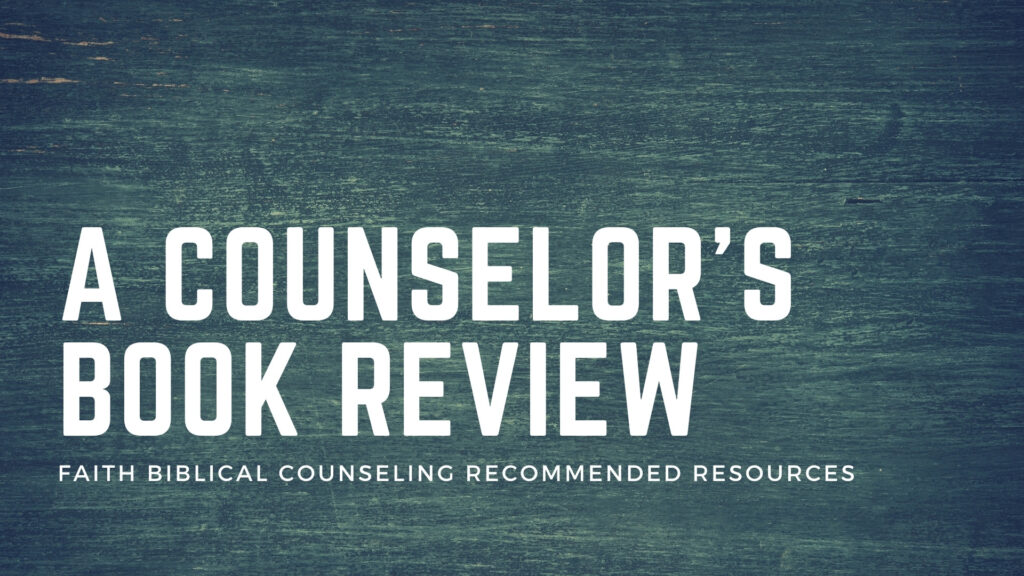
Struggles. We all have them. Some struggles are the smaller day-to-day kind, and some are life-dominating. Sometimes we feel the struggles are inescapable. We feel trapped. In Trapped: Getting Free From People, Patterns, and Problems Andy Farmer explores these seemingly inescapable struggles. Farmer wants to show how the gospel is sufficient to free us from our traps to a life of freedom in Christ.
The book is divided into two parts: the framework and the application. The first four chapters lay out the problem of traps and the help and hope Christ offers for them. The second half of the book takes the basic framework of the first half and applies it to specific traps. Farmer addresses how the truths of the gospel apply specifically to each of several traps in which people find themselves.
Farmer begins by giving us a tour of some ways we may find ourselves trapped. He uses stories to help us identify what being trapped might look like. Next, the book walks us through several traps: approval of others, laziness, eating disorders, pornography, and substance abuse. The author observes that while we all desire freedom, we often do not know how to achieve it, nor are we willing to do the work of changing that achieving freedom requires.
After showing us what it means to be trapped and some of the struggles one might have with pursuing freedom, Farmer points us to true freedom in Christ. The reality is that we are all trapped in sin, and we all need redemption. However, our most extraordinary redemption – our freedom – has already been purchased for us at the ultimate price. If Jesus has already redeemed us in this remarkable way, we can confidently trust him in every other area of our life.
Chapter four, “Real Freedom,” takes the big picture of redemption and freedom from sin in Christ and applies it to the daily struggles of life. Farmer argues that understanding our liberty in Christ is the key to living in light of our redemption. He says, “Here is the key idea. The Bible gives us the wonderful news that we weren’t simply redeemed from sin, we were redeemed for God!” (emphasis original). He highlights three aspects of our freedom that we need to embrace: the grace in your freedom, the identity in your freedom (identity both as an individual and as a church community), and the calling in your freedom. Farmer wants us not just to see our sin but to see what the Bible calls us to instead of our sin. He wants us to see the beauty of serving Christ rather than ourselves. We are free, not to serve our desires, but to serve Christ.
Chapters five through ten are the application chapters. Each of these chapters walks through a different trap. Farmer uses stories from real-life struggles to help us see what that trap looks like in real life and then shows the way out. Notably, he demonstrates how the big picture of Christ’s redemption of his people helps us to overcome the sin that enslaves us. The author casts a vision for what Biblical freedom looks like in that area of our life so that we know what it means to turn to Christ and not just from our sin.
Trapped is an excellent resource for helping your counselee work through idolatry in many of its manifestations. The book’s general principles are applicable in any situation, and the application chapters are especially valuable to those specific areas. Even if a counselee’s struggle does not fall into one of the particular areas the application chapters cover, they can still use the chapters as a model of what it looks like to apply the gospel to enslaving idolatry.
There are various ways that one might use this resource with a counselee. It would be valuable as a resource to read straight through with a counselee, even if the chapter does not cover a topic that seems immediately applicable. Sometimes seeing how Biblical truth applies in another situation helps us see through the fog of our sin. It would also be beneficial to hone in on the most pressing issue at hand. In that case, it would be most helpful to read the introduction and the first four chapters for the Biblical framework, and then the application chapter most appropriate to your counselee’s situation.
Each of the application chapters helps you identify what the trap looks like in someone’s life and then illustrates the Biblical vision of freedom in Christ in this area of life. Trapped can be a helpful tool to help your counselee “see” that vision through the lens of Scripture as you walk them through what it would look like in their own life.
 Biblical Counseling
Biblical Counseling